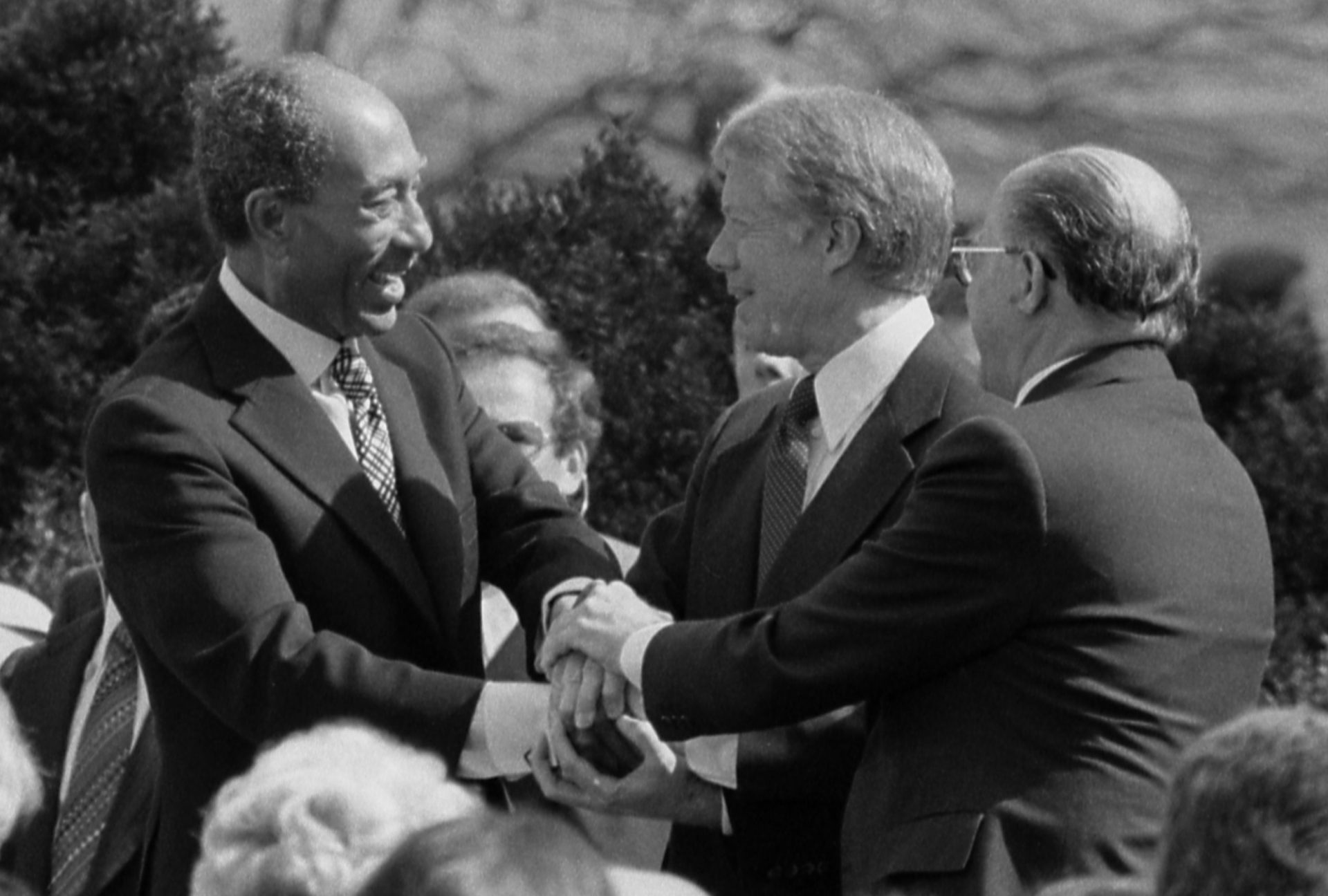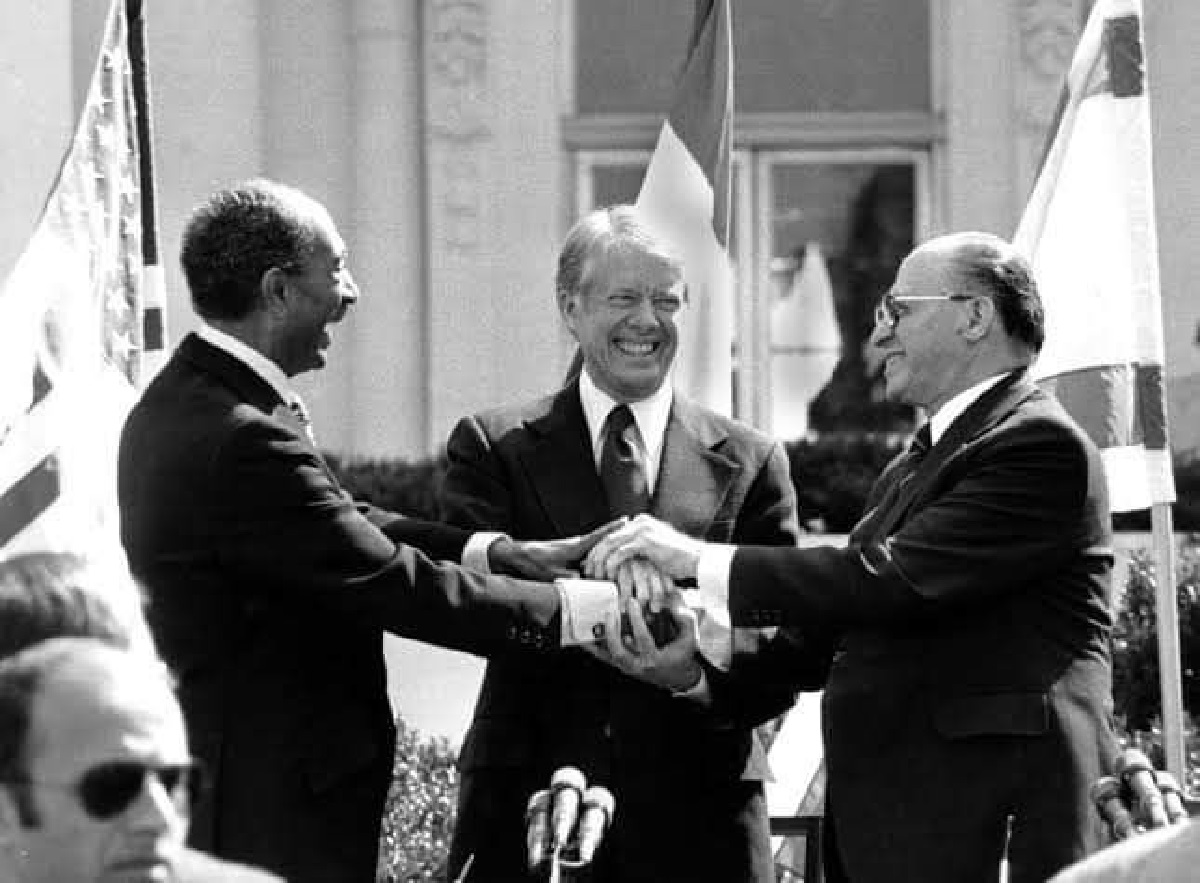Watan-The documents revealed discussions indicating that Arab leaders were not less strict than the Zionist entity regarding the rejection of establishing an independent Palestinian state in the event of reaching a two-state solution.
According to these documents, the argument presented by Arab leaders to American and Western officials was that if an independent Palestinian state were established, it would “become a tool for the Soviet Union.” However, they requested that this demand of theirs remain confidential.
Sadat: All leaders of the Palestine Liberation Organization are spies for the Soviets.
In one of the documents disclosed by the U.S. National Archives, Israeli Prime Minister Menachem Begin tells Egyptian President Anwar Sadat that some leaders of the Palestine Liberation Organization are Soviet spies. Sadat responds, “No, they are all Soviet spies!”
A U.S. document, including minutes of a meeting between U.S. President Jimmy Carter and Brazilian President Ernesto Geisel held in Brazil on March 29, 1978, states that President Geisel told President Carter that the future is not in favor of “Israel,” which is ruled by the most radical (referring to Begin).
He continued that Brazil supports UN Resolution 242, recognizes the state of Israel, and also believes that Israel should return the territories it occupied during the wars, and the Palestinians have the right to remain as an independent state; they have the right to land and national existence.
Geisel, according to the released documents, stated that Arabs are gaining strength in numbers, wealth, and equipment, and currently, the situation is in favor of Israel, a strong state with extraordinary capabilities. However, in the future, the advantage will shift towards the Arabs.
President Carter affirmed agreement with President Geisel’s prediction, stating that Brazil’s perspective on the situation aligns completely with the United States’ perspective, except for one aspect – the establishment of a Palestinian state.
He explained further that the United States sees that it will not contribute to stability in the Middle East “if there is an independent Palestine between Israel and Jordan.” The preferred option is a joint Israeli-Jordanian administration for about five years, after which the Palestinians would have the choice of affiliation with either Israel or Jordan.
President Carter stated his assumption that the Palestinians would choose to join Jordan.
However, the Brazilian President objected to this and stated that the West should prefer the establishment of an independent Palestinian state. After that, it could be left to the Arabs to convince the Palestinians of the best solution “unless Western countries take a positive stance, we will lose the Palestinians.”
Another secret U.S. document in the Carter Library, numbered (Box 63-3/78, 1-5-78- Carter’s visit to Brazil and Venezuela), included minutes of a meeting between U.S. President Carter and Venezuelan President Carlos Andrés Pérez on March 28, 1978, in Caracas.
In this referred-to transcript, President Carter, in response to a question from President Pérez about involving the Soviet Union with the U.S. in finding a solution to the Palestinian issue, said: “The United States keeps the Soviet Union fully informed, but the leaders of the region do not want to see the Soviet Union play a significant role.”
Carter continued, “Egypt, Jordan, and Syria expressed deep concern when we signed an agreement with the Soviet Union. The problem is that the Soviets still demand complete Israeli withdrawal and an independent Palestinian state under the supervision of the Palestine Liberation Organization. However, in secret, the Arab leaders do not want to see the Palestinians in an entirely independent state that would open their countries to destruction!”
President Pérez responded by saying that he understands the Saudis’ stubbornness regarding the establishment of an independent Palestinian state.
President Carter mentioned that many leaders in the region have taken a different stance privately than what they have publicly declared. “They want peace with Israel so strongly that they will adjust their position to accept the Israeli-Sadat solution.”
Leaks from the meeting between Carter and King Khalid in 1978
And there is also an extremely classified American document that included the minutes of a meeting between U.S. President Carter and Saudi King Khalid bin Abdulaziz in Riyadh on 3/1/1978, attended by (Prince Fahd, Prince Abdullah, and Prince Sultan). Various issues were discussed during the meeting.
During the meeting, when President Carter expressed “concerns” about the establishment of an independent Palestinian state, echoing the fears of other Arab leaders, Carter stated: “There is a fear that the independent Palestinian state could become a central target for the influence of Libya, Iraq, and others.”
This led to the suspension of the conversation, which then turned into a secret discussion between King Khalid and Prince Fahd. Subsequently, King Khalid resumed his conversation with President Carter, asserting: “If the Palestinian state is established as an independent state with international guarantees, similar to Cyprus, there will be no room for these concerns.”
It’s worth noting that Prince Fahd, who later became the King of Saudi Arabia, was among the staunch opponents of the establishment of an independent Palestinian state, in line with the views of other Arab leaders, though expressed discreetly.

